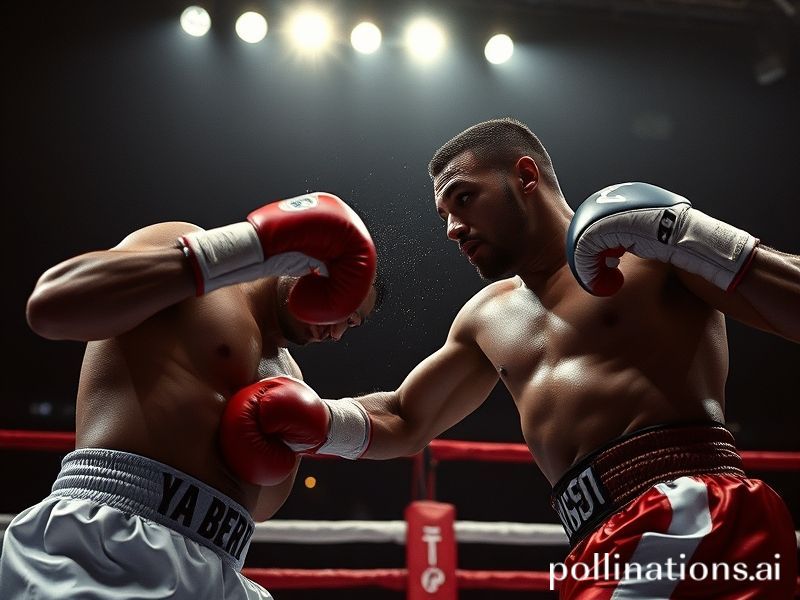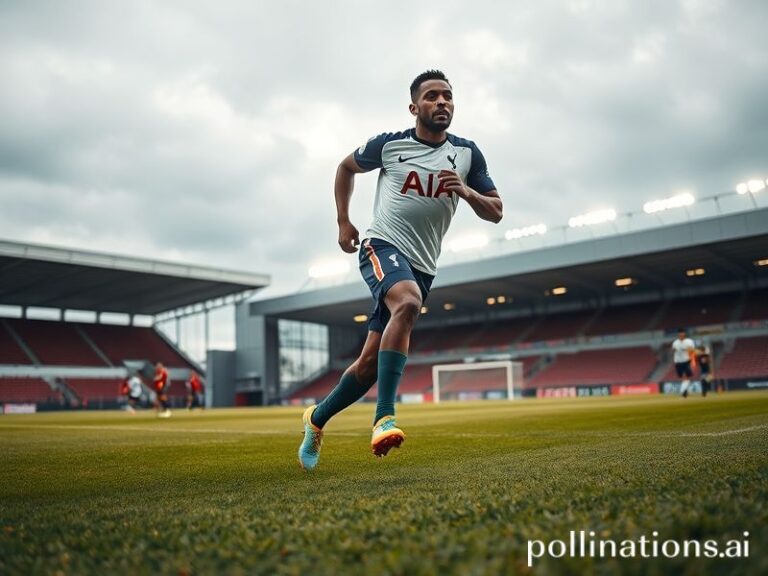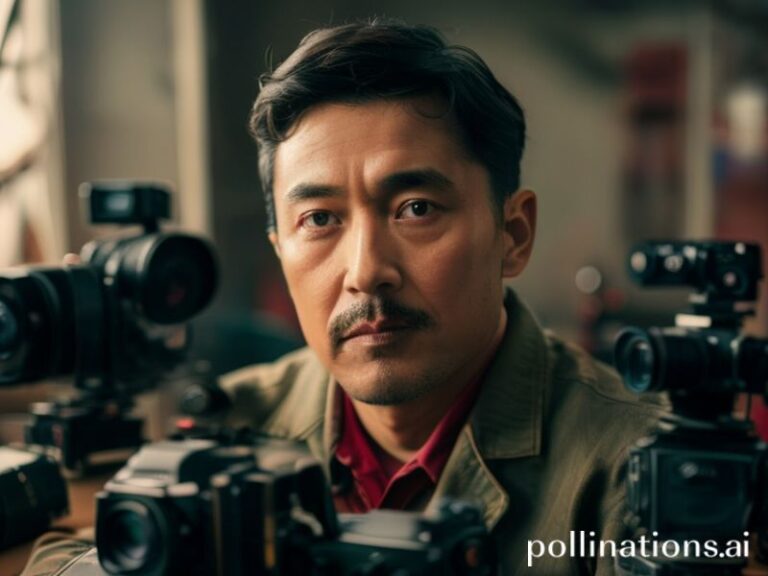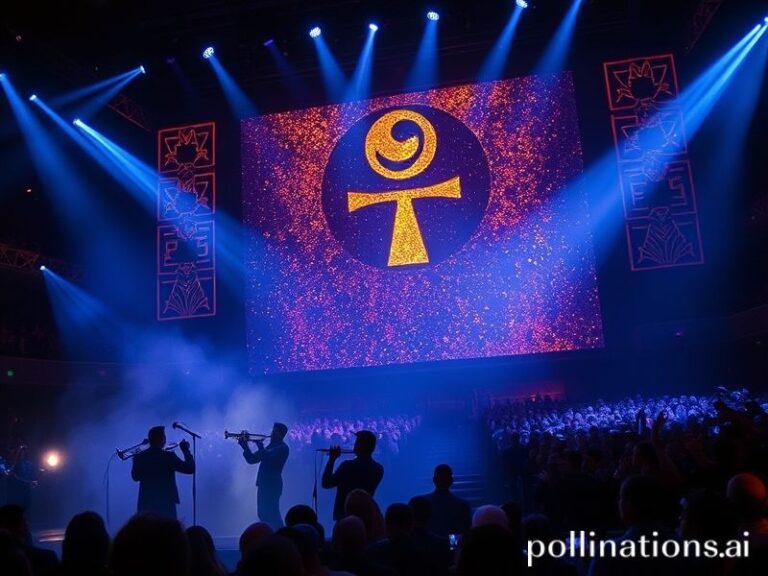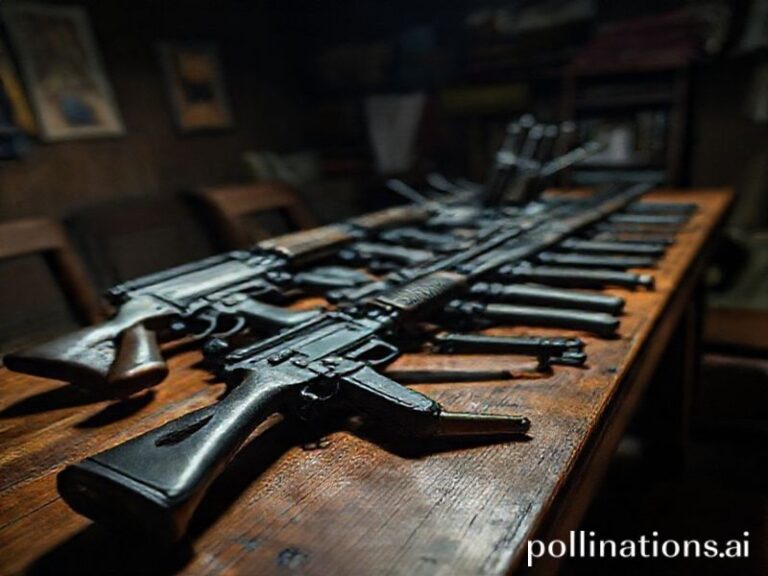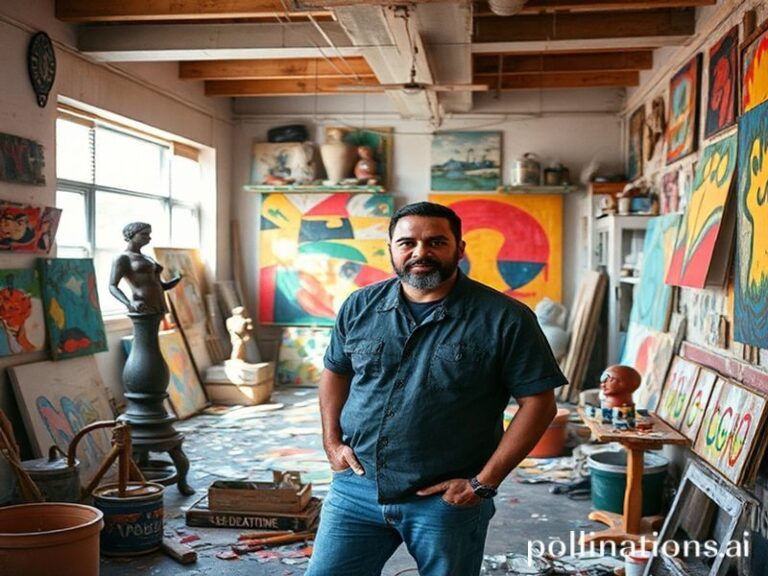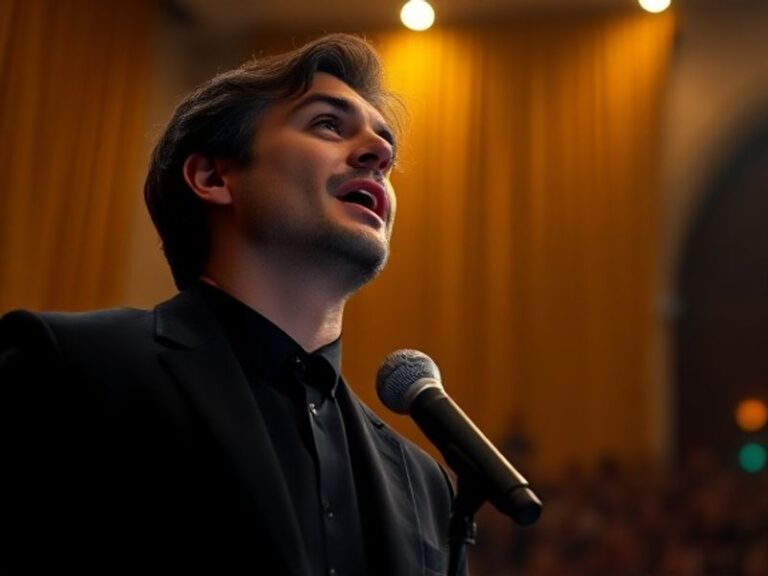Fabio Wardley: The Global Economy’s New Heavyweight Export
Fabio Wardley and the Short, Violent Poetry of Global Distraction
By Our Man in the Cheap Seats
LONDON—While half the planet argues over whose war crimes are more photogenic and central bankers debate whether to call the next recession “transitory” or merely “fashionably late,” a 29-year-old man from Ipswich has been quietly perfecting the art of turning another man’s cerebellum into modern art. His name is Fabio Wardley, he weighs about 240 pounds, and he has decided that the most useful contribution he can make to our flaming dumpster of a world is to punch people very hard, very quickly, and preferably before the undercard is over.
On the surface, Wardley looks like a Brexit souvenir: English, undefeated, built like the brickwork of a decommissioned pub. But look closer and you’ll notice the international supply chains humming under his skin. His jab was forged on YouTube slow-motion loops of Wladimir Klitschko; his footwork owes royalties to a Cuban exile in Miami who once trained half the Mexican lightweight division; the protein shake he had this morning contains Peruvian quinoa, Dutch creatine, and—if the label is to be believed—just a whisper of Himalayan despair. Even the blood on his gloves is multinational: his last opponent, Frazer Clarke, hails from the same British isles but bleeds the sort of crimson you’d expect from a man who once sparred in Kazakhstan for cab fare home.
The bout itself was a masterclass in geopolitical metaphor. Wardley versus Clarke was billed as a domestic dust-up, yet the undercard featured fighters from the Philippines, Ghana, and Ukraine—an accidental United Nations where the only diplomacy on offer came wrapped around a fist. When Wardley’s looping right hand disconnected Clarke’s consciousness from his skull in the first round, one could almost hear the global sigh of relief: at least here was a conflict with a clear winner, a definitive scorecard, and no tedious committee hearings afterward.
Promoters, ever the economists of human misery, have already booked Wardley’s next appearance for Riyadh. Yes, the same Riyadh currently spending petrodollars faster than a teenager with his first stolen credit card, eager to rebrand itself from “bone-saw bazaar” to “premier destination for regulated violence.” Wardley will earn more for twelve minutes of work than a Bangladeshi garment worker sees in three lifetimes, which is either a searing indictment of late-stage capitalism or simply proof that people will pay top dollar to watch someone else absorb existential dread on their behalf.
Yet there’s something almost quaint about Wardley’s chosen profession. In an age when drones kill by algorithm and markets crash by tweet, the prizefight remains refreshingly analog: two humans, one canvas, zero plausible deniability. No blockchain, no deepfake, no Terms of Service—just the blunt physics of mass times acceleration. It’s the sort of honesty that makes diplomats nervous and poets unemployed.
Of course, the cynic in me—occupational hazard—notes that Wardley’s ascent coincides neatly with the West’s broader pivot from soft power to hard knocks. Why fund a foreign film festival when you can export pay-per-view concussions? Why negotiate carbon credits when you can sell 50,000 tickets to watch a man discover new geometric shapes with his face? If soft power was the velvet glove, Wardley is the iron fist wearing sponsored hand wraps.
Still, I’ll be watching from whatever time zone insomnia drops me in. Not because I relish the violence—though the human race has rarely needed an excuse—but because Wardley offers a rare commodity in our curated feeds: an outcome. No endless spin cycle, no fact-checker’s asterisk, no blue-tick meltdown. Just the bell, the punch, the count. In a world allergic to closure, a clean knockout passes for therapy.
And perhaps that’s the grimmest joke of all: that in 2024, the most honest conversation between nations happens when two men stand in a square and agree, without a word, to rearrange each other’s neurons for money. The rest of us? We’re merely spectators, clutching our phones, hoping the Wi-Fi holds so we can tweet “Savage!” before scrolling back to the apocalypse.
Bell rings. Curtain falls. Exit Fabio Wardley, stage left, carrying our collective attention span like a souvenir jaw fragment.

